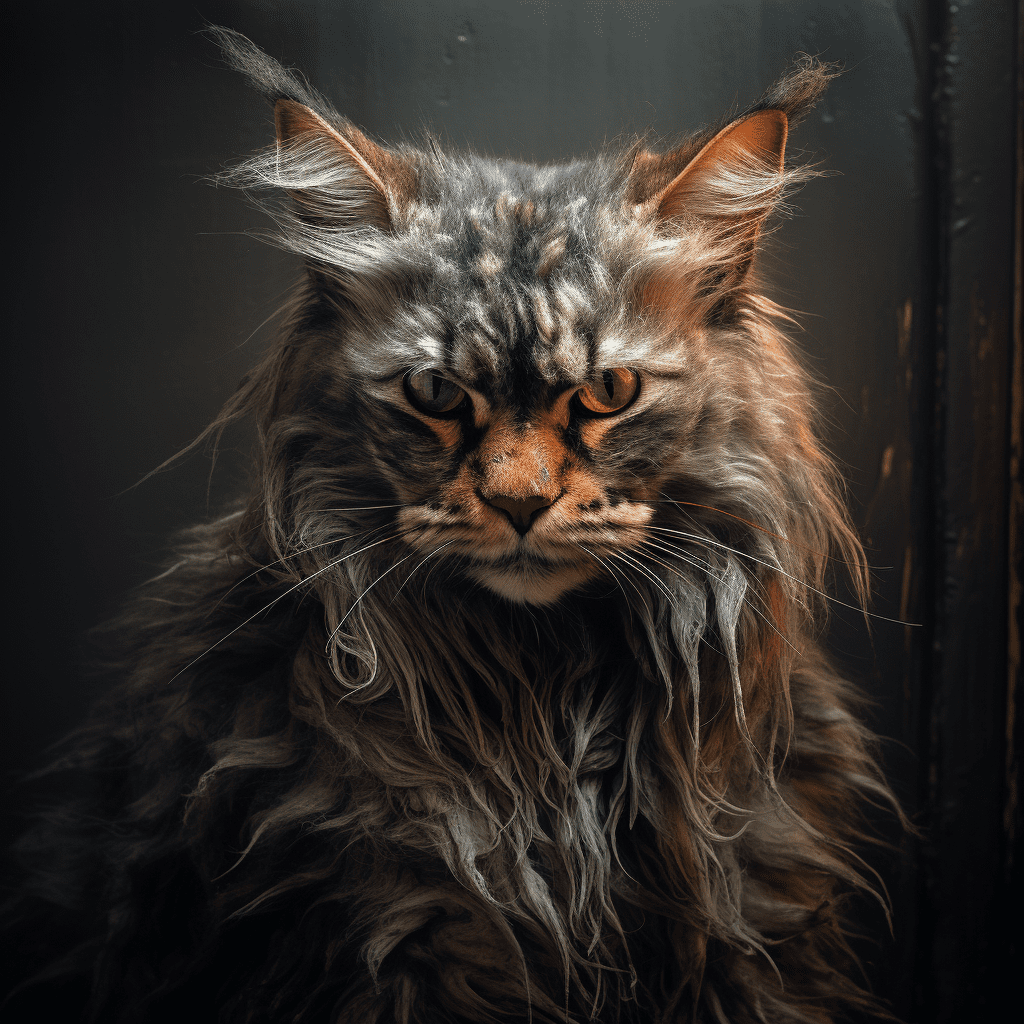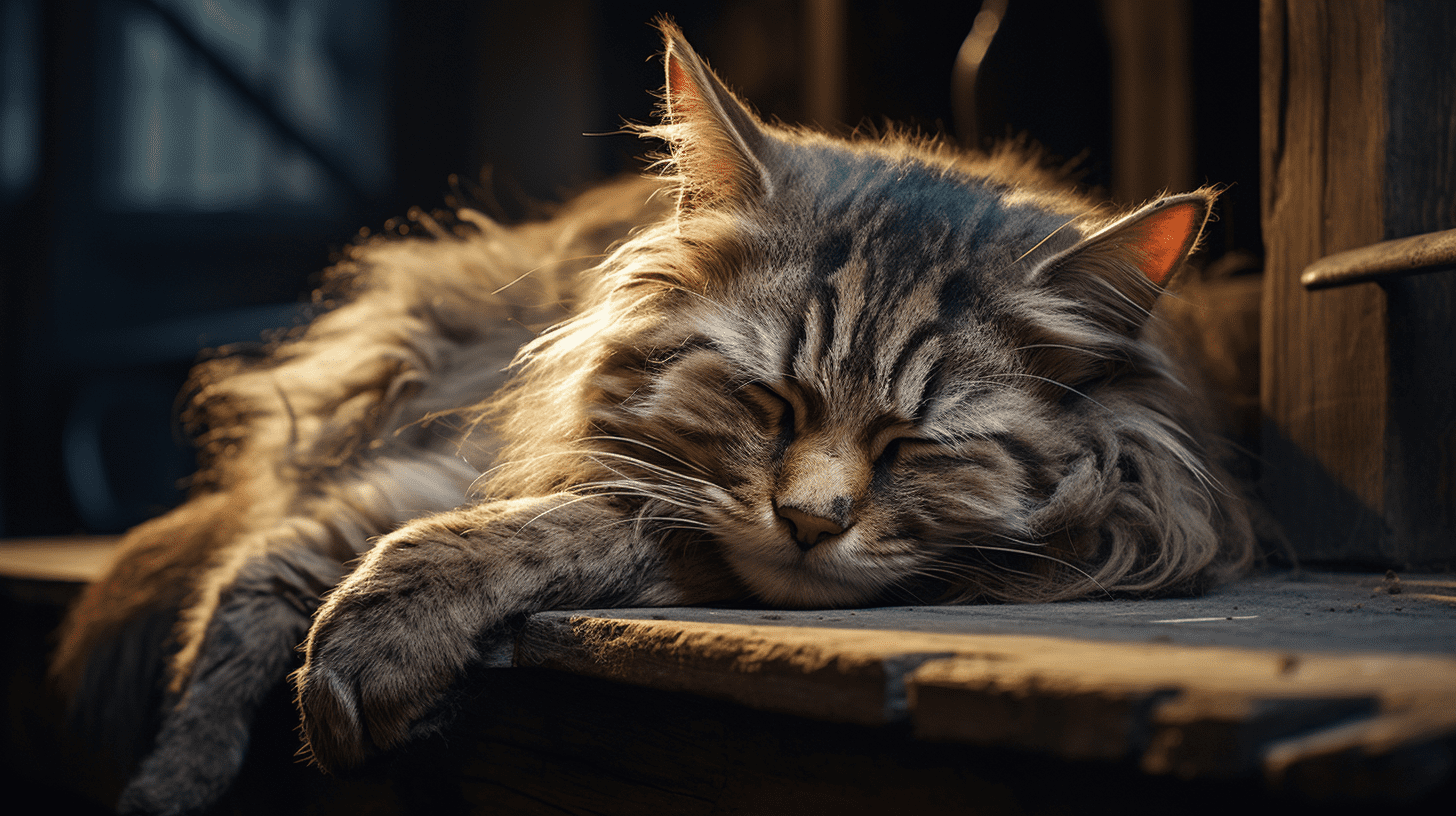Navigating the Golden Years: Health Challenges in Older Cats
Introduction to Senior Cat Care
Caring for older cats is a journey marked by love, patience, and an understanding of their evolving needs. As cats enter their senior years, often considered to be around the age of 7 and above, they begin to face various health challenges associated with aging. The goal at Kjubiimods is to enlighten cat owners on how to navigate these golden years, ensuring that their beloved pets enjoy comfort, wellness, and quality of life.
 An old looking cat representing the grace of aging felines.
An old looking cat representing the grace of aging felines.
Recognizing Health Challenges in Aging Cats
Monitoring a cat’s behavior and physical condition is crucial as they age. Signs of potential health issues can include a decrease in activity, weight loss or gain, changes in appetite, or altered grooming habits. Early detection of these symptoms is key in managing chronic conditions and extending the well-being of a furry companion.
Nutritional Needs for Elderly Felines
Nutrition plays a pivotal role in managing health challenges in older cats. A tailored diet that accounts for caloric needs, digestive health, and potential medical conditions such as kidney disease or diabetes is paramount. Navigate to a comprehensive guide to cat food and dietary needs to discover the best nutrition practices for senior cats.
Importance of Regular Veterinary Check-ups
Routine veterinary examinations are more critical than ever for an aging cat. Regular check-ups can help in the early detection of common age-related conditions. It is encouraged to learn about the significant benefits of preventive veterinary care in a detailed discussion on the importance of regular vet check-ups for cats.
Common Age-Related Diseases in Cats
Several diseases are more prevalent in older cats, including kidney disease, hyperthyroidism, and arthritis. Being well-informed about these conditions allows for early intervention and tailored treatment plans. Explore the full spectrum of feline age-related diseases within the cat health section for a deeper understanding.
Behavioral Changes and Cognitive Dysfunction
Behavioral changes are not uncommon in aging cats and might be indicative of cognitive dysfunction or even pain. Maintaining a comforting routine and environment can greatly aid in managing this aspect of elder pet care.
Managing Chronic Conditions in Older Cats
Chronic conditions require dedicated attention and often a multi-faceted management approach involving medication, diet, and lifestyle adjustments. Consulting with a vet for a personalized care plan is essential to manage chronic conditions effectively.
Dental Health Preservation
Dental health is often overlooked yet critically important. Ensuring a cat maintains good oral health by providing appropriate dental care and regular check-ups, as dental diseases can impact overall health significantly.
Strategies for Maintaining Mobility and Comfort
As cats age, their mobility may decline, potentially leading to discomfort and reduced quality of life. Utilizing strategies such as joint supplements, low-impact exercise, and comfortable resting areas can support their mobility and comfort.
The Role of Pet Owners in Senior Cat Care
Pet owners play a vital role in identifying health changes and advocating for their senior cats’ care. Staying attentive to subtle changes and maintaining open communication with a veterinarian are in the best interest of a pet.
Adaptations to Home Environment for Aged Cats
Creating a cat-friendly home environment that accommodates an older cat’s needs can include adding ramps, heated beds, or litter boxes with low sides for easy access.
Caring for a Cat with Vision or Hearing Loss
Older cats may experience diminished vision or hearing. Keeping their surroundings consistent and safe, while also ensuring they are not startled by unexpected interactions, is vital.
When to Consider Specialized Veterinary Care
There may come a time when specialist care is necessary for an older cat. Seeking such services if recommended by a vet, focusing on the best outcomes for a cat’s specific needs.
 An concerned owner reflecting the bond and care for their aging companion.
An concerned owner reflecting the bond and care for their aging companion.
The Emotional Impact of Caring for an Older Cat
Acknowledging the emotional weight that comes with these responsibilities is important. Providing for an older cat can be challenging, but equally rewarding, filled with moments of tender companionship and the peace of knowing optimal care is offered.
Conclusion: Planning for the Golden Years
As dedicated cat owners, thoughtful planning for pets’ golden years is a must. Understanding and effectively addressing the health challenges in older cats can transform their senior years into a time of contentment and affection. Remember to utilize resources such as a comprehensive guide to cat waste management and insights on what a cat’s poop says about their well-being to further enhance care strategies.
Together, cherish and support feline friends through every stage of their precious lives.
